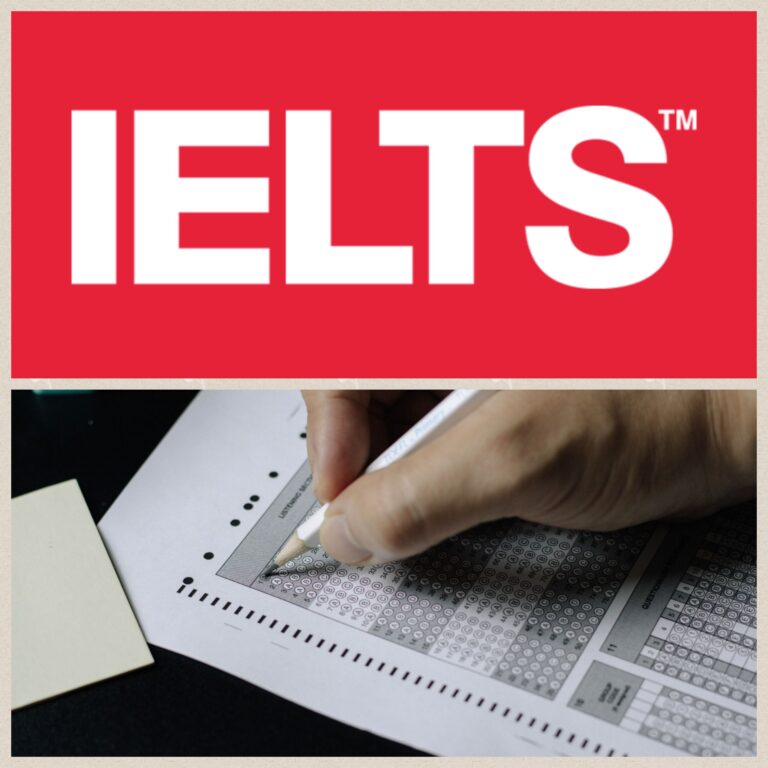DELTA (Diploma in English Language Teaching for Speakers of Other Languages)
The DELTA is a level 7 certificate on the Regulated Qualification Framework in the UK, the equivalent level to a master’s degree. You don’t need to take the 3 modules in order; you can start any of the modules first.
For more information about the content of each module, click here.
Each DELTA Module is assessed in a different way:
- DELTA Module 1: written examination
- DELTA Module 2: a portfolio of coursework, including lesson observations
- DELTA Module 3: a written assignment
For more detail, you can download the summary of how each module is assessed here.
You can find out more about DELTA by clicking here.
You can read the Cambridge DELTA Handbook here.
Certification
- Cambridge Certificate awarded Cambridge upon completion of each module (e.g., Cambridge Certificate in DELTA Module 1, Cambridge Certificate in DELTA Module 2 and Cambridge Certificate in DELTA Module 3)
- Cambridge DELTA diploma awarded upon completion of all three modules
Loyalty Discounts: Anyone who completes our CELTA course will receive 10% off any of our other courses, including CELTA and the Certificate and Diploma in Teaching IELTS courses.
Are you an experienced teacher looking to enhance your knowledge of English Language Teaching and develop your theoretical and practical expertise? Do you want to gain a deeper understanding of language systems, methodology and assessment?
DELTA Module 1 could be the perfect choice for you. This module focuses on examining ELT theory and practice while preparing you for the written Cambridge DELTA Module 1 exam.
You will explore
- second language acquisition theories;
- language analysis (phonology, grammar, lexis, discourse, etc.);
- teaching methodologies and approaches;
- assessment principles, testing and evaluation; and
- lesson planning and course design.
This module is the first step toward the full Cambridge DELTA, a Level 7 qualification on the UK Regulated Qualifications Framework, equivalent to a master’s degree.
Entry requirements
- Minimum age: 18
- Minimum language level: Proficient C1
- Entry requirements: CELTA qualification (or equivalent)
- Teaching experience: Not required
Why choose ELTeach for Module 1?
- Highly Experienced Tutors – Expert guidance to help you succeed
- Comprehensive 11-Week Course with 11 Pre-Session Reading and Tasks – A structured programme covering all key areas of the exam
- Mock Exams & Exam Practice – Full preparation for the written test
- Flexible Study Schedule – Balance your learning with other commitments
What does Module 1 involve?
This module is assessed through a written exam, which consists of two papers, each divided into five tasks:
- Paper 1 (90 minutes) – Focuses on language analysis and learner issues
- Paper 2 (90 minutes) – Covers ELT methodology, approaches and assessment
Throughout the course, you will
- engage in live, teacher-led input sessions via Zoom;
- complete practice tasks and mock exams to build confidence;
- receive feedback for personalised exam readiness;
- access comprehensive reading lists and independent study materials.
How much time will I need to commit?
You’ll need to set aside 10–12 hours per week outside of the two-hour weekly sessions for your DELTA work. This time will mainly go towards completing the weekly pre-session study packs, plus any additional reading or mock exam practice.
We’ll send you all the pre-session study packs before the course begins, and you’ll be expected to work through the relevant pack(s) for each session ahead of time, following the course timetable. This preparation is really important — it will help you get the most out of the live sessions.
What support will I get?
- Live Online Sessions – Interactive teacher-led classes via Zoom
- Mock Exams – Timed practice to help you prepare for the real thing
- Individualised feedback and exam guidance
- Guidelines and Reading Lists – Curated resources for effective study
How can I take the exam?
The DELTA Module 1 exam isn’t tied to a specific course or centre, so you can register at any Cambridge-authorised test centre worldwide, often called an ‘open center’. These could be language schools, universities or exam providers like the British Council. You don’t have to take it where you prepared, and not all centres offer it, so contact them early to confirm availability. Registration deadlines are usually about six weeks before the exam date, but this varies by centre — some might need your application even earlier, so plan ahead.
What are the grades for Module 1?
The grades awarded are:
- Pass with Distinction
- Pass with Merit
- Pass
- Fail
Are you an experienced teacher looking to move into more senior roles? Do you need to expand your knowledge in the field of English Language Teaching and embark on the next step of your Continuous Professional Development journey? DELTA Module 3 could be for you. This module focuses on broadening your knowledge of a chosen specialism and will develop your understanding of syllabus design, testing and assessment. You will write a 4000-4500-word extended research-based assignment on a group of your own learners. It involves designing and conducting a thorough needs analysis and diagnostic test and culminates in designing a 20-hour course for your chosen group. It is one of the 3 modules that count towards the full award of the Cambridge DELTA.
Entry requirements
- Minimum age: 18
- Minimum language level: Proficient C1
- Entry requirements: CELTA qualification (or equivalent)
- Teaching experience: Not required (but recommended)
- Option 1: you use your own students (this option is ideal if you are teaching while doing DELTA Module Three)
- Option 2: you use our students (this option is ideal if you aren’t teaching and cannot get hold of students while doing DELTA Module Three)
Why do Module 3 with ELTeach?
- Our highly experienced tutors have helped hundreds of candidates successfully achieve the results they need in Module 3.
- 14 weeks’ support gives you the time you need to complete the assignment.
- The flexibility to start whenever you want throughout the year.
- Flexibility for breaks over major holidays (Christmas, Ramadan, Easter, etc.)
What does it entail?
Candidates will write a 4000-4500-word extended research-based assignment on a group of their own learners. It involves needs analysis and diagnostic testing and leads to the design of a 20-hour course for the chosen group. You can choose from the following specialisms and should have some experience with the specialism you choose:
- 1 to 1 teaching (1 to 1)
- Teaching Exam classes (EX)
- Monolingual classes (MON)
- Multilingual classes (MUL)
- Teaching in an English-Speaking environment (ESE)
- Teaching in a non-English-speaking environment (NESE)
- Teaching YLs/Young adults (specified age group required with 5-year range for example. 8–13, 14–19) (YL)
- Language development for teachers (LDT)
- English for Academic purposes (EAP)
- English for Special purposes (ESP)
- Business English (BE)
What support will I get?
- an initial Zoom call with the tutor to discuss the specialism and answer questions related to the assignment
- 14 weeks of 1-to-1 tutor support via email
- a personalised study schedule to help keep you on track
- access to asynchronous support materials and support in a basic ‘structure’ for each of the 4 main parts of the assignment
- access to key texts for the assignment
- detailed feedback on each part of the assignment and then on the complete rewritten assignment
- a final ‘health check’ of the assignment before submission to check formatting, etc
What can you expect to learn on this course?
- Research into specialist areas
- Present an informed discussion of the context and needs of learners in their selected specialism.
- Summarise the principles and theories of teaching which are specific to the selected specialism.
- Apply knowledge and understanding of the selected specialist area to plan for and assess learners in the chosen specialism.
- Syllabus design: principles, influences on, methodological effects of and major syllabus types as applied to the specific learning context
- Critically evaluate approaches to syllabus design, including their theoretical base, in relation to the broader curriculum and to the specific learning/teaching context selected by the candidate.
- Evaluate and critically assess the influence of major theories of second language acquisition on the design of major types of syllabi in ELT and their influence on course provision.
- Select and develop criteria for judging the suitability of different types of syllabi for stated teaching and the specific learning context.
- Describe the influence of syllabus design on English Language Teaching (ELT) methodology.
- Designing syllabus and teaching programmes to meet the needs of learners in the specific context of their selected specialism
- Design and plan the implementation of syllabuses and courses for a stated teaching context and group of learners.
- Critically evaluate, adapt, design and conduct a variety of needs analyses to inform syllabus and teaching programmes.
- Course design and development in the specific context of their selected specialism
- Apply knowledge of needs analysis and syllabus design to designing a course for a selected group of learners.
- Prepare a scheme of work based on the course outlined.
- Select or outline appropriate materials for the course.
- The principles and practice of testing and assessment and application to the candidate’s specialist area
- Describe and explain major principles involved in testing, test design, and different types of assessment.
- Apply these principles to the planning and/or design and use of assessment schemes, methods and instruments that are fair, valid, reliable, sufficient and appropriate for specific learners, using ICT where appropriate.
- Select, adapt and create valid classroom tests and other forms of informal assessment appropriately.
- Evaluate and interpret the results of classroom tests appropriately.
- Monitoring and evaluating the effectiveness and quality of courses and programmes of study
- Select, adapt and create appropriate assessment tools (including formal tests and exams) and methods in order to monitor and evaluate the effectiveness and quality of courses and programmes of study.
How can I take the exam?
To take the DELTA Module 3 exam, you’re not actually sitting a traditional exam like you might imagine with pencils and a test booklet. Instead, DELTA Module 3 is assessed through an extended written assignment, which you submit to Cambridge English for evaluation. Registration isn’t tied to a specific course or centre, so you can register directly as an independent candidate through a Cambridge-approved centre (e.g., at any Cambridge-authorised test centre worldwide, often called an ‘open center’). Deadlines are twice a year — usually early June and December — so you’ll need to plan ahead. You can register for the ‘exam’ by contacting a centre about two months before the deadline.
What are the grades for Module 3?
The grades awarded are:
- Pass with Distinction
- Pass with Merit
- Pass
- Referred (N.B. you may resubmit once, but will have to pay the Cambridge registration fee again plus any further tutor support required)
Language requirement: C1












